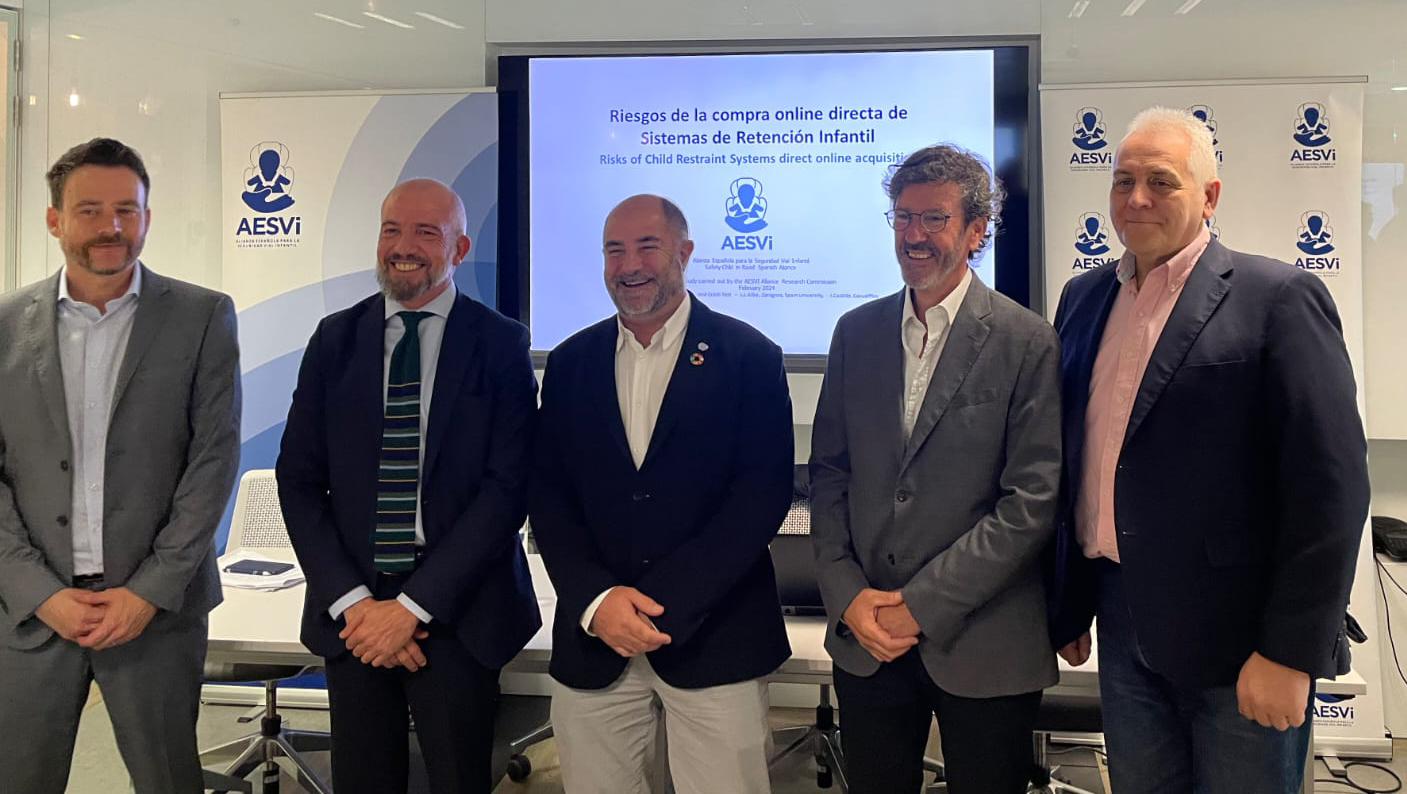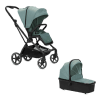AESVi warns of the danger of car seats purchased on non-EU direct import platforms

In recent years, globalisation has led to a closer connection between the markets of different continents, with the direct import of products of non-EU origin through the internet being an increasingly common practice in the European market. One of the main factors that has facilitated this direct import is the presence of global e-commerce platforms that allow European consumers to access a wide variety of products at competitive prices.
However, the disparity in safety and quality regulations between the European Union (EU) and other regions of the world raises legitimate concerns. Failure to comply with European standards and non-compliance with the conditions for the entry into service of products whose import is beyond the control of the mechanisms of European countries, can pose a risk to consumer safety.
Faced with this situation, the Spanish Alliance for Child Road Safety, AESVI, the largest forum of national and international experts in child road safety, set out to analyse the specific situation of Child Restraint Systems in order to offer an accurate report called “The danger of CRS acquired on non-EU direct sales platforms” on the real risks that devices acquired on this type of portal can pose for the safety of children.
To this end, the AESVi Research Commission has carried out a scientific research study led by renowned experts in children’s road safety such as Juan J. Alba, professor in the Department of Mechanical Engineering at the University of Zaragoza; Joan Forrellad, responsible for the crash test of Jané Spain; and Javier Castillo, head of CasualPlay homologations. The three researchers are members of AESVI where, in addition, they serve as vice-president, secretary general and leader of the Alliance’s Research working group, respectively.

Development of the scientific study
To carry out this scientific research, AESVi acquired 10 representative samples of different ages of use, without taking into account brands, prices or technical or legal compliance considerations in the most popular direct import sales platforms in Spain. In other words, all those CRS advertised as such on these platforms and that could be interpreted as a child restraint system for the car, were candidates to be acquired for the test.
The examination process included the verification of its behaviour in the corresponding dynamic frontal impact test.
The age groups or sizes of these CRS should represent, if possible, from birth to 150cm in height.
There were no limitations on price or assumptions of compliance or appearance. Nor were selections made by brands.
A random purchase process was then carried out with direct shipment to the laboratory (Applus+ IDIADA) in which the tests were carried out. The laboratory itself unpacked the CRS and reported in its reports the detail of their information and receipt status.
The Spanish laboratory Applus+ IDIADA prepared the test reports, the graphic documentation, the audit of each sample and designated the most representative dynamic test, crash test, for each of the samples received.
Each sample was classified in accordance with the European Regulation under which it was approved in order to carry out the dynamic tests in accordance with that Regulation. Three of the samples tested were acquired after the entry into force of the European directive regulating the import of Child Restraint Systems: on September 1, 2023. This directive explicitly prohibits the import of CRS into the European market with approvals under the old European Regulation ECE R44.
The Laboratory decided to make the reports with the criteria of the current legislation (in January 2024), criteria based on the current Regulation ECE R129.
As these were unique samples, only a single test could be performed for each SRI.
The dummies used in the tests were of the P and Q Series depending on the characteristics of each CRS and according to its approval label: P Series for the ECE R44; Q Series for those labeled ECE R129; Q series for those who did not have Approval and for samples imported after September 1, 2023.
Study results
The results of the tests of the study The danger of CRS purchased from non-EU direct sales platforms carried out on these 10 child restraint systems showed that none of them could have been approved in their current conditions, i.e. none was suitable for marketing in Europe due to serious regulatory and technical non-compliances:
From an administrative point of view:
- None of the samples were subjected to customs control.
- None of the samples complied with EU consumer legislation.
- 60% of the samples lacked approval.
- 40% of the samples responded to misleading advertising.
From a technical point of view:
- None of the safety devices analysed complied with the CRS approval regulations, not even those that had an approval label.
- 70% of the samples did not pass the dynamic test.
- 30% of the devices showed total inefficiency: the dummy was ejected.
Conclusions of the study
The year 2023 has been critical in terms of deaths of minors in traffic accidents: 22 children lost their lives; more than twice as many child fatalities as in 2022 when 10 minors died. This fact has led to reflection on the need to establish greater controls on the use of CRS. It is not enough to control that families comply with the formal aspects of the security that affects their children (complying with the law); it is also necessary to ensure that CRS develop their maximum functional potential while providing maximum safety. But there are two problems that prevent this:
On the one hand, and as already reported in the previous AESVi study called “Effects of the use and ageing of child restraint systems“, the second-hand market has deficiencies and the purchase and sale of child safety products with a high degree of deterioration proliferates. AESVi is already working to get the Administration to ban the sale of second-hand child restraint systems.
On the other hand, and through this new scientific study, AESVi warns about platforms for the sale of products from non-EU markets that introduce CRS that do not comply with the safety standards required in the EU. Both problems pose a high risk to children’s road safety, as families rely on safety devices for their children whose basic functions may be impaired, as shown by AESVi studies.
The results of the tests are unappealable: none of the child restraint systems tested could have been approved in their current conditions. With these results, the authors of this study conclude that, in order to address the challenges presented here, it is essential to strengthen international cooperation in the supervision and application of safety standards. In fact, common European regulations have mechanisms to block the entry of unsafe non-EU products into our market, but it is clear that they are not being applied.
For all these reasons, AESVi calls on the future political leaders of the European Union who are elected in the next elections, to review the current policy of control of online purchases of direct import with the aim of preventing the acquisition of fraudulent Child Restraint Systems, with possible irregularities and, in addition, to guarantee the safety of the little ones.
















